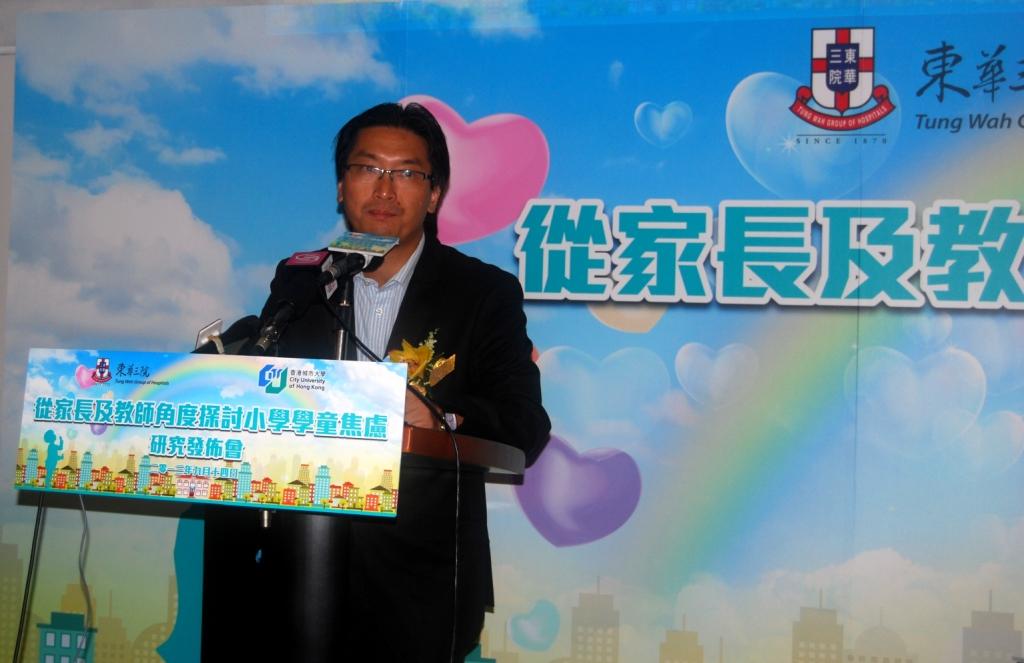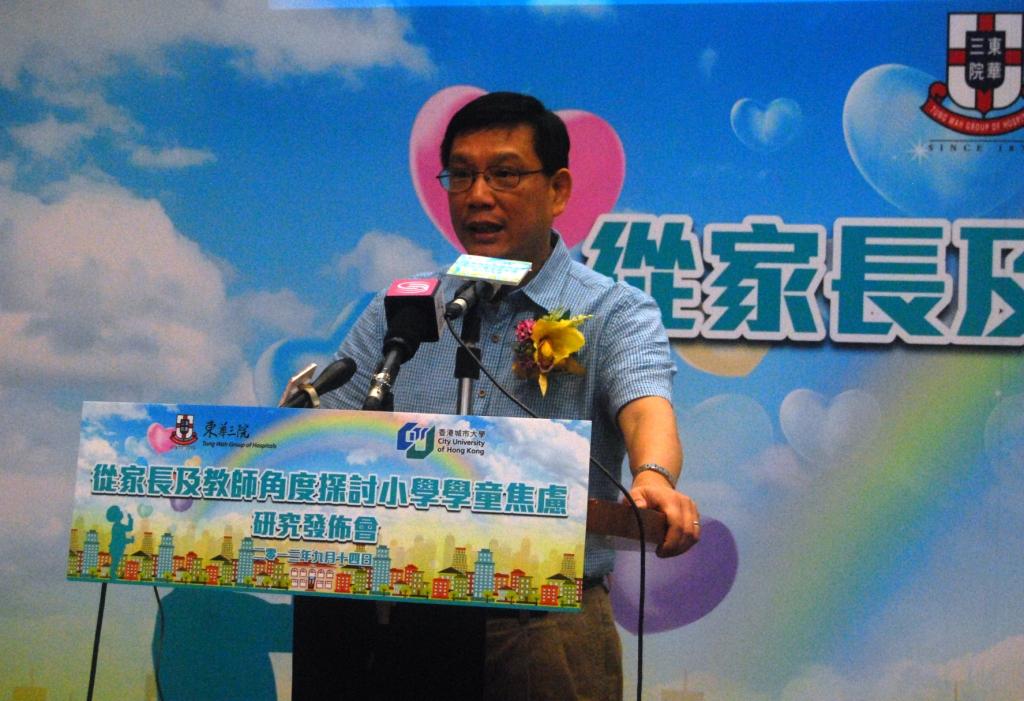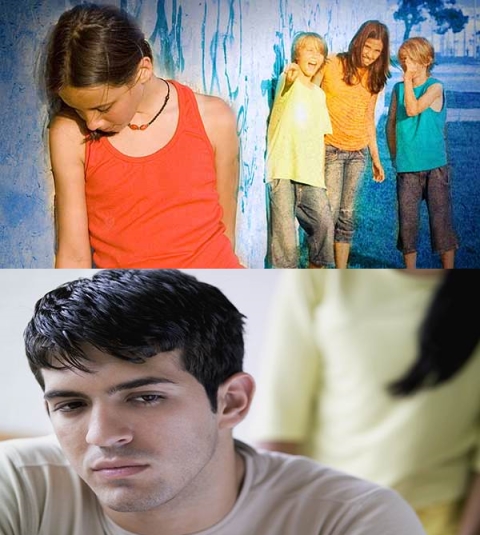Hong Kong got the higher rate than overseas
Exploration of Hong Kong Primary Students’ Anxiety
Tung Wah Group of Hospitals (TWGHs) Student Counselling Services has collaborated with Applied Society Science Faculty of Hong Kong City University to process the research between January and June 2013. The objective is exploration of Hong Kong Primary 1 to Primary 3 students about the abnormal characteristics and onset rate of Anxiety through the angle of parents and teachers. In this research, there has been received the 235 questionnaires from parents and 85 from class teachers respectively. 12% Students Got Anxiety Above the Average The result shows near 12% students got anxiety, and the level is above average which was reflected from 320 questionnaires, and this figure is higher than the same age oversea students. Gender is another factor which exhibited the differentiated result amid the figure. 14% anxious boys are above average while 9% of the girls are. In addition, about 8% of students got the mild or moderate anxiety. Overall, there are the similarities among the questionnaires of parents and class teachers, 24% students got Separation Anxiety and 17% got the Social Phobia, and also, the level they had been gotten which are above average. It implied both of them are raging in between Junior Primary students. However, there are three differences. In parents’ questionnaires, more than 50% of students have been remarked as specified phobia; in class teachers, there is 27%. General Anxiety, 47% students higher than normal level in the batch of teacher questionnaires, and parents’ have 0.7%. Meanwhile, teachers’ questionnaire expressed 18% of students have higher level on phobia or Agoraphobia, but in parents’, it just less than 10%. Parents Don't Over Control Your Children Professor Wong, Faculty of Applied Social Science of Hong Kong City University pointed that, in school, it is the environment which could trigger the students to engender the agoraphobia or any other phobia. The dissimilarities of Specific Phobia, such as dark or insects, may be based on the understanding level between parents and students. At home, competent of self-learning and difficult to express feelings, both are the modifiers of Anxiety. Girls may be more sensitive to the attitudes of parents, so the more controlling, more anxiety will be, even produces the disgusting. On the contrary, subjective happiness, the competent of self-learning and self-determination on leisure time at home, those are the factors which could resist anxiety. In the other words, teach the children to keep happiness, how to acquire the satisfaction from self-learning, and the leisure entertainments could skip anxiety. Professor Wong reckons, whereupon, society must take seriously on balancing the works and family, and the parents could have more time to get along with your children. Mr. Meng, the supervisor of Students counselling services of TWGHs, said, Family environment and students’ Anxiety are being interacted. The parents have the responsibility on establishing the clam and united environment, and to encourage your children to express their feelings, lessen controlling and don’t consist too much on truth and false, the risk of anxiety will be diminished. The collaboration with the parents is the responsibility of school which could create the joyful learning environment. Moreover, more and more positive interpersonal relationship and more communication or contact with each other could be good at decreasing the opportunity of citing Anxiety. Associate professor, Dr. Kwok, Faculty of Applied Social Science of Hong Kong City University suggested, carving out the strengthens of the students, nurturing positive emotions, more admiration and less reproach or criticize, the parents and teachers could work out and to set the reasonable learning target that could elevate the learning result of the students altogether. As a result, the children could grow in the happiness atmosphere.
Mr. Meng, the supervisor of Students counselling services of TWGHs
Professor Wong, Faculty of Applied Social Science of Hong Kong City University
|
|












